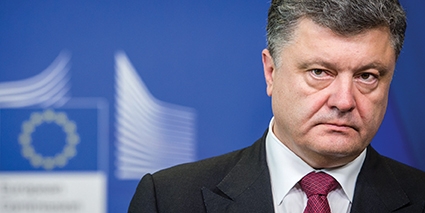Why Poroshenko did not Attend the BSEC Summit
The Black Sea Economic Cooperation (BSEC) came into existence as a unique and promising model of multilateral political and economic cooperation, with the signing of the Istanbul Summit Declaration and the Bosporus Statement by the Heads of State and Government of the countries in the region, on June 25 1992.
With its Charter being granted on 1 May 1999, BSEC acquired international legal identity and was transformed into a full-fledged regional economic organization - the Organization of the Black Sea Economic Cooperation.
The President of Ukraine, Petro Poroshenko, did not plan to take part in the summit of the Organization of the Black Sea Economic Cooperation (BSEC), which takes place in Istanbul, due to the "low status" of the declared participants.
Despite this, the BSEC summit in Istanbul went ahead. Russia was represented by Prime Minister Dmitry Medvedev. It was expected that Poroshenko would take part in the meeting of the heads of state and prime ministers who are members of this association. Poroshenko was represented in the delegates from the Ukraine, yet the group of Ukrainian representatives at the summit in Istanbul was headed by First Deputy Prime Minister Stepan Kubiv.
"Proposals to participate were discussed, but Poroshenko was managed to be convinced not to attend" - said the source. According to him, this decision is connected to the so called "low status" of representatives of the BSEC countries that were announced to participate in the summit.
The Black Sea Economic Cooperation Organization is an intergovernmental organization uniting 12 states of the Black Sea and the Southern Balkans. It was founded in 1992. The headquarters of the organization are located in Istanbul. Member-States: Albania, Armenia, Azerbaijan, Bulgaria, Georgia, Greece, Moldova, Romania, Russia, Serbia, Turkey, Ukraine
Dimitri Dolaberidze












